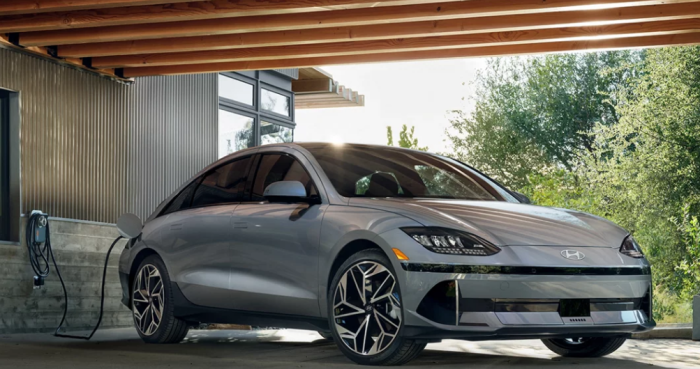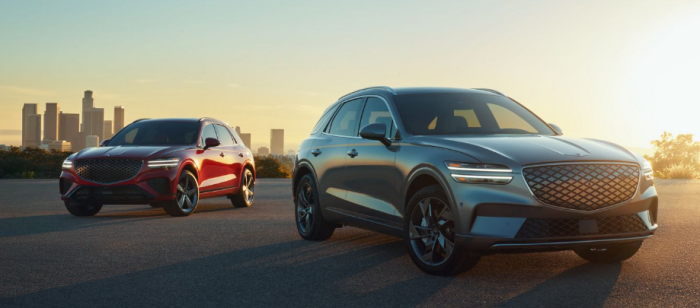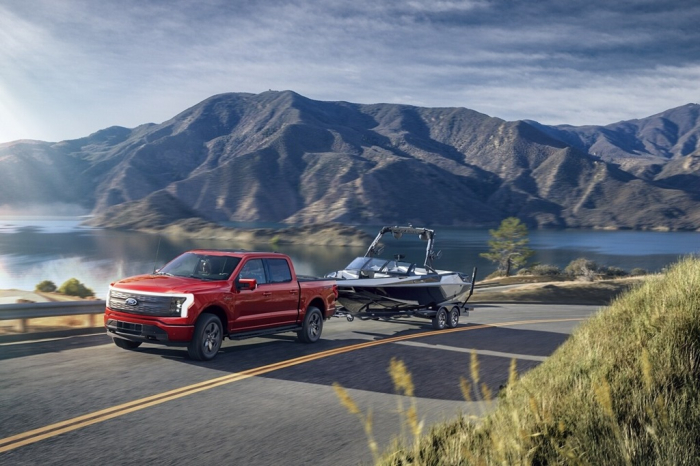Electric vehicles
Hyundai, LG ask US to ease EV tax benefit requirements
Global automakers request the US government to raise the threshold from 2% for battery minerals exempt from FEOC rules
By Jan 22, 2024 (Gmt+09:00)
5
Min read
Most Read
LG Chem to sell water filter business to Glenwood PE for $692 million


Kyobo Life poised to buy Japan’s SBI Group-owned savings bank


KT&G eyes overseas M&A after rejecting activist fund's offer


StockX in merger talks with Naver’s online reseller Kream


Mirae Asset to be named Korea Post’s core real estate fund operator



South Korean electric vehicle and battery makers including Hyundai Motor Group and LG Energy Solution Ltd. have asked the US to ease requirements for tax benefits on clean cars given the difficulty in manufacturing eco-friendly automobiles without the Chinese raw materials banned by the Biden Administration.
Hyundai Motor Group, which encompasses two automakers – Hyundai Motor Co. and Kia Corp. – requested the Department of the Treasury and the Internal Revenue Service to increase the threshold for exempting certain battery minerals from foreign entity of concern (FEOC) rules to 10% from the current 2%, according to the Federal Register.
The group, the second-largest EV seller in the US, proposed that the US federal government excuse minerals that account for 10% or less of total battery costs from the requirement to prove their origins in response to the US government’s requests for the EV and battery industries’ input on its detailed requirements for EV benefits.
“We strongly believe that this proposal reflects the reality faced by the industry as a whole and that it is impractical to completely eliminate FEOCs immediately from the supply chain of certain applicable critical minerals used in the manufacture of batteries and battery components,” the group said in a letter to the government dated on Jan. 18.
The proposal, once accepted, is expected to allow Hyundai Motor Group to be eligible for the benefits although it uses some minerals from China as the FEOC regulations effectively aim to ban raw materials from the country.
ELECTRIFIED GV70 EXCLUDED
Washington has been providing EV buyers with subsidies of up to $7,500 per vehicle assembled in North America. The EVs of Hyundai Motor Co. and Kia have not been eligible for the incentives since they are made in South Korea.
Hyundai Motor Co. started manufacturing an electric version of the Genesis GV70, a sport utility vehicle under its standalone premium brand Genesis, at its plant in Montgomery, Alabama, in February last year to take advantage of the US policy.
The Electrified GV70 was denied access to government subsidies under stricter requirements on battery sourcing in April 2023, however.

Hyundai Motor Group is offering discounts of up to $7,500 for their EVs, including the Hyundai IONIQ 5, IONIQ 6 and the Kia EV6 to enlarge its market share amid falling demand in the world’s second-largest US clean car market.
NO RIGHT TO FORCE MINERAL SUPPLIERS TO VERIFY ORIGINS
LG Energy, the world’s second-largest EV battery manufacturer, made a similar request, recommending that “low-value” materials, comprising less than 10% of the value of all critical minerals in a battery, be excluded from sourcing requirements.
The South Korean cell manufacturer said low-value minerals could include materials for cathodes such as cobalt, zirconium, tungsten, yttrium and titanium, as well as ingredients for anodes including graphite and fluorspar.
“Existing supply agreements with critical mineral suppliers do not commonly require that the supplier disclose the origin of the raw materials that it provides to the battery manufacturer,” LG Energy said in a separate letter.
“If a minerals supplier refuses to respond to a certain request as to sources, the manufacturer has no legal remedy to force the supplier to verify the origins of raw materials.”
SK On Co., LG Energy’s smaller rival, along with Hyundai Motor Group, also said graphite must be excluded from the sourcing requirements.
The world’s fifth-largest EV battery maker said it will take at least 42 months to develop and commercialize new materials to replace Chinese graphite.
The US government in December raised the bar further by detailing new battery sourcing requirements to be eligible for benefits.
Washington announced a plan not to provide the benefits to a vehicle that uses battery parts manufactured in FEOC-related countries. From next year, the administration is set to exclude the incentives for EVs equipped with batteries made with minerals produced from FEOC-related nations.
The government also requested that companies establish systems to trace the origins of minerals by 2026 with the condition that minerals making up less than 2% of the total battery price could be exempt from the rules.
RESISTANCE OF GLOBAL EV MAKERS
Hyundai Motor Group requested the US to raise the criteria to 10% as it aims to benefit from the federal subsidies, although it uses minerals and components produced by joint ventures with Chinese companies.
“HMG is committed to making the necessary changes in compliance with the Proposed Rule, but, as previously discussed, it cannot ignore the current market situation and needs time to adjust its supply chain for the manufacture of batteries.”
The Alliance for Automotive Innovation, a Washington, D.C.-based trade association, asked the Biden Administration to lift the threshold to 5%.
Members of the lobby group include international car and light-duty truck manufacturers that build and sell products in the US such as General Motors Co., Ford Motor Co., Stellantis N.V., Hyundai Motor Group, Volkswagen, Mercedes-Benz and Nissan Motor Co.

Japan Automobile Manufacturers Association requested Washington to implement the mineral rules after 2027 and clarify the process of the FEOC regulations.
Panasonic Holdings, the global No. 4 battery maker, said the tougher rules may prompt EV makers to use more Chinese products.
“It is costly and difficult to trace the origins of battery minerals,” said the Japanese company, suggesting automakers are likely to seek cheaper Chinese materials if regulation costs are higher than the federal benefits.
EV makers including the world’s leader Tesla Inc. also requested that the US government list battery minerals subject to the rules.
Given such resistance, Washington may accept some of those requests by automakers, South Korean EV and battery sector sources said. The Biden Administration is expected to announce the final decision reflecting the industries’ input in the near term, they added.
Write to Jae-Fu Kim, Jin-Won Kim and Nan-Sae Bin at hu@hankyung.com
Jongwoo Cheon edited this article.
More to Read
-
 Electric vehiclesHyundai, Kia offer up to $7,500 discounts for EVs in US
Electric vehiclesHyundai, Kia offer up to $7,500 discounts for EVs in USJan 14, 2024 (Gmt+09:00)
3 Min read -
 AutomobilesKia offers up to $7,500 in incentives in US for leasing EV6
AutomobilesKia offers up to $7,500 in incentives in US for leasing EV6May 17, 2023 (Gmt+09:00)
1 Min read -
 Electric vehiclesHyundai Motor seeks remedies after GV70 exclusion from US subsidies
Electric vehiclesHyundai Motor seeks remedies after GV70 exclusion from US subsidiesApr 18, 2023 (Gmt+09:00)
4 Min read -
 AutomobilesHyundai Motor begins Genesis GV70 EV production in US
AutomobilesHyundai Motor begins Genesis GV70 EV production in USFeb 23, 2023 (Gmt+09:00)
1 Min read -
 Electric vehiclesHyundai to build EVs at US plant; Electrified GV70 to roll out in Dec.
Electric vehiclesHyundai to build EVs at US plant; Electrified GV70 to roll out in Dec.Apr 13, 2022 (Gmt+09:00)
3 Min read
Comment 0
LOG IN


